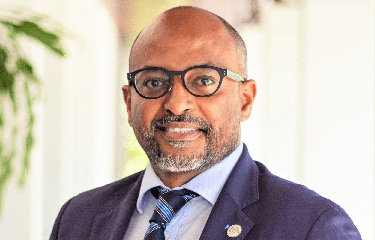Africa currently accounts for a negligible share of the world’s farmed seafood production. With an estimated annual farmed seafood output of 2.3 million metric tons (MT) – or 2 percent of world production – the continent has a long way to go in reaching its potential, which some experts estimate can reach 15 million metric tons by 2050.
For over 45 years, WorldFish has led projects to improve sustainable aquaculture and fisheries projects in an attempt to fulfill the nonprofit's larger mission of reducing hunger, malnutrition, and poverty across Africa, Asia, and the Pacific Islands.
WorldFish Director General Essam Yassin Mohammed shared his perspective with SeafoodSource on the status of Africa’s aquaculture industry, some of the challenges constraining growth of farmed seafood, and potential investment opportunities for the continent’s development partners, especially the European Union, which has partnered with WorldFish in the past.
SeafoodSource: What are some investment opportunities in Africa’s aquaculture sector that the European Union, including private firms from Europe, can pursue to grow its share of the continent’s farmed seafood market? Also, what are the constraints involved in achieving this?
Mohammed: Africa’s aquaculture sector presents multiple opportunities and challenges, reflecting the continent’s diverse and dynamic nature. With vast water resources, a growing demand for fish products due to urbanization, and competitive advantages such as affordable labor and land, the continent offers promising investment prospects.
Countries like Egypt, Nigeria, and Madagascar have already seen significant growth in aquaculture, serving as beacons of potential for others. Additionally, regional initiatives like the African Continental Free Trade Area (AfCFTA) are paving the way for more seamless intra-African trade and business operations.
However, it’s essential to acknowledge the challenges to providing a balanced perspective. Some regions still grapple with infrastructure constraints, regulatory ambiguities, access to finance, and specific skill gaps in modern aquaculture practices. But these challenges are far from insurmountable. As African nations increasingly collaborate and share knowledge, there's an evident trajectory toward overcoming these hurdles.
For the European Union and its private entities, a nuanced understanding of both the potential and the challenges can pave the way for mutually beneficial engagements in Africa's burgeoning aquaculture industry.
SeafoodSource: What role do governments in Africa have to play in wooing more European Union investment in the continent’s aquaculture sector?
Mohammed: African governments – across the continent's diverse landscape – are increasingly playing a central role in magnifying the appeal of their aquaculture sectors to European investors. Establishing transparent regulatory structures has been a cornerstone effort, designed not only to ensure sustainable practices but also to instill investor confidence. The bolstering of infrastructure, a theme echoing [throughout] Africa, [underscores] the imperative of a robust supply chain that bridges production locales with thriving markets. As these nations develop, there's a growing recognition of the value of human capital, leading to investments in training and capacity-building, prepping local industries for seamless collaborations with European entities.
However, as Africa opens its doors wider for investments, there's a crucial caveat.
Investments from the E.U. and its private entities must be grounded in inclusivity and equity. While the continent offers vast resources and opportunities, European stakeholders must be wary of not merely exploiting these riches. Ethical investment that improves the livelihoods of coastal communities, conserves local cultures and ecosystems, and ensures long-term sustainability is nonnegotiable. It’s not merely about financial capital; it's about building relationships, fostering trust, and ensuring that Africa's aquaculture boom benefits all – from local fish farmers to consumers.
To boost foreign investment in Africa's aquaculture sector [overall], it's imperative to ...
Photo courtesy of the Consultative Group on International Agricultural Research








